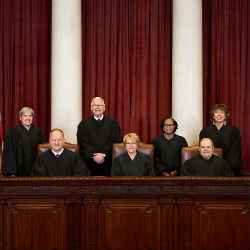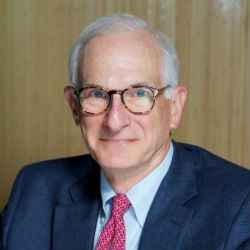Here's a sneak peek at what's inside our 2017 Winter newsletter, which will be live on December 15 and hit mailboxes soon after!
- Minnesota Supreme Court to consider government transparency in the new year.
- We filed a lawsuit against the Worthington Police Department (among others) on behalf of Anthony Promvongsa, who was brutally assaulted by an officer last year.
- John Gordon, our new executive director, shares his reflections about the endings and beginnings that signify a new year—and how we can work together to advance civil liberties.
- We took Sheriff Leslie to court after he tried to unlawfully collect John Emerson’s DNA. And we won.
- With the Super Bowl LII only months away, we give a brief overview of your right to protest and basic ways to protect your privacy.
Be on the lookout for the full newsletter on December 15 (with ACLU news updates, information about DACA, highlights from our Earl Larson Award Reception, and more)!
OTTO V. WRIGHT HEADS TO THE MINNESOTA SUPREME COURT

Minnesota State Auditor Rebecca Otto initially sued Wright, Becker, and Ramsey counties back in 2016 because she wanted to fight a provision that allowed counties to use private auditors instead of her office.
Her case has since evolved into a bigger issue of government transparency and the integrity of our legislative branch.
The Minnesota state legislature voted on and passed a provision in 2015 allowing counties to hire private auditors. They did so by adding it on to an unrelated omnibus finance bill. The practice of adding unrelated riders is common among state and federal legislators. Sometimes it is done to expedite or streamline processes. Other times it is done to force negotiations and swiftly pass legislation without proper debate.
Regardless of the motivations, people have a right to know what their legislators are voting on. When provisions are buried and obscured in unrelated bills, transparency and civic engagement is compromised.
That is where the Single Subject and Title Clause comes into play. The Minnesota State Constitution, Article IV, Section 17, reads: “No law shall embrace more than one subject, which shall be expressed in its title.”
But a law is only as strong as its enforcement, and unfortunately, the Single Subject and Title Clause is routinely undermined.
Otto v. Wright County has been scheduled as the first case for oral argument in the Minnesota Supreme Court on Wednesday, January 3, 2018. Will it be business as usual for the Minnesota legislature? Or will the judicial branch stand up for the integrity of the Single Subject and Title Clause? We’ll find out in the new year.
ACLU OF MINNESOTA FILES LAWSUIT IN POLICE BRUTALITY CASE

Anthony Promvongsa worked as a caregiver for his grandmother in Worthington, Minnesota. He wanted to do more, so with the encouragement of his girlfriend, he signed up for a GED class.
That’s where Anthony was headed to on July 28, 2016, when two off-duty police officers stopped Anthony in the middle of the road and accused him of tailgating. He didn’t want any trouble, so he turned around and headed home. But on his way back, he saw the flashing of police lights. Without knowing why he was being stopped, he pulled to the side of the road.

NO SHERIFF LESLIE. YOU CAN'T HAVE MY DNA.

Sheriff Leslie violated a Minnesota court ruling in place for over a decade. In 2006 the Minnesota Court of Appeals invalidated a statute that required law enforcement to collect
KNOW YOUR RIGHTS: SUPER BOWL & DIGITAL SECURITY

YOUR RIGHT TO PROTEST
- You have a constitutionally protected right to peacefully protest in “traditional public forums” such as streets, sidewalks, or parks. The government can impose “time, place, and manner” restrictions, as long as they are not based on content. Be aware of any city or county ordinances regulating First Amendment activities during the Super Bowl.
- You have the right to wear a mask and/or obscure your face while engaging in a protest. But in some places, wearing a mask or concealing your identity while engaging in criminal activity or racially-motivated intimidation may result in criminal charges and additional penalties.
- Under the USA Patriot Act, non-US citizens who are not permanent residents can be investigated because of their First Amendment activities. Immigrants who choose to engage in a protest, march, or demonstration should carry with them the telephone numbers of friends and relatives, as well as the telephone numbers of an immigration attorney or an immigrant advocacy organization.
PRIVACY MATTERS
- Super Bowl surveillance may include street cameras, facial recognition software, and social media tracking, among other strategies. Expect increased airport security.
- The Super Bowl is a 10-day festival that will take place starting January 26, 2018. If you are engaging in events at or even near the festival, expect to be under surveillance.
- Integrated security can match facial recognition software with social media, so be aware of what you are posting on any social media accounts leading up to and during the events.
- Use applications like Signal and WhatsApp for stronger encryptions to protect your text and voice communications.
- Remove the fingerprint unlock on your phone to prevent police from asking you to unlock your phone using this feature.
- Take photos and videos without unlocking your phone, if possible.
